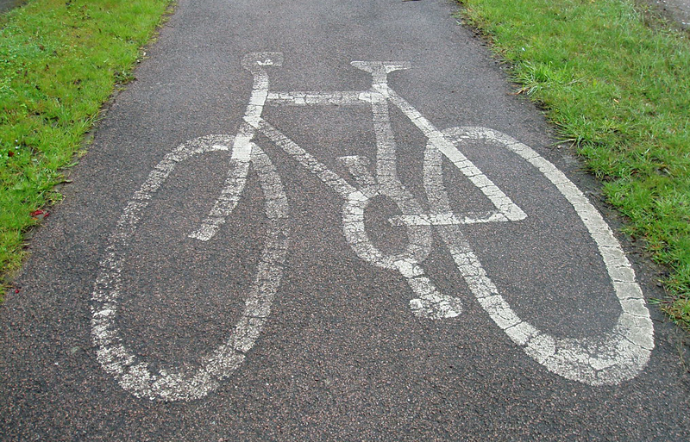Carbon & Plastic Reduction
Reducing carbon emissions and plastic waste is a fundamental step in tackling the climate emergency and protecting the environment. Parish and town councils can lead by example by cutting emissions from their own operations, supporting local businesses and residents in adopting sustainable practices, and promoting waste reduction and circular economy initiatives.
Conducting a Carbon Footprint Audit
Understanding your carbon footprint is the first step in developing a targeted reduction strategy. Councils can use carbon calculators to measure emissions from energy use, transport, and waste. Conducting a baseline carbon audit will help identify areas where improvements can be made.
Actions for Councils:
-
Use the Impact Community Carbon Calculator to measure local emissions and track progress
-
Assess energy consumption in council buildings and switch to energy-efficient heating, lighting, and insulation.
-
Encourage local businesses and residents to calculate and reduce their carbon footprint using government and NGO carbon tracking tools.
Useful links:


Reducing Carbon Emissions from Council Operations
Councils can take direct action to reduce emissions from their operations and support businesses in making sustainable changes.
Actions for Councils:
-
Switch to renewable energy providers for council buildings and facilities.
-
Conduct an energy audit and invest in LED lighting, heat pumps, and solar panels.
-
Encourage local businesses to adopt green energy and provide guidance on funding options.
-
Transition council fleets to electric or hybrid vehicles and install electric vehicle charging points.
-
Promote carbon offsetting initiatives where unavoidable emissions occur.
Funding and Resources:
-
Salix Finance – Interest-Free Loans for Public Sector Energy Efficiency Projects
-
The UK Business Climate Hub – Advice for Small Businesses

Carbon Offsetting
Carbon offsetting involves balancing out the carbon dioxide emissions produced by council activities by investing in projects that reduce or absorb an equivalent amount of CO2. The Gloucestershire Nature and Climate Fund is setting up sites to allow for local offsetting. As much as possible carbon insetting is encouraged over offsetting to tackle emissions directly within the councils own supply chain. Offsetting is increasingly being critiqued as a type of greenwashing, with many companies failing to deliver the carbon savings they are charging for. If your council decides to proceed with offsetting ensure you use a reputable company, preferably working within the county, Carbon offsetting and insetting should be used as a last resort when emissions have been reduced as much as possible, as we cannot offset our way out of the climate crisis – each person would need to plant around 15 trees a year (that could never be cut down) to offset their emissions.

Encouraging Low-Carbon Lifestyles in the Community
Councils can help residents and businesses transition to a low-carbon lifestyle by promoting energy efficiency, sustainable transport, and waste reduction.
Actions for Councils:
-
Provide home energy efficiency advice and promote grant schemes for insulation and renewable energy.
-
Support community car-sharing schemes and active travel initiatives like walking and cycling routes.
-
Run educational campaigns to help residents make climate-friendly choices, such as reducing food waste and consuming less energy.
-
Work with local businesses to encourage sustainable supply chains and plastic-free alternatives.
Useful links:
-
Energy Saving Trust – Home Energy Grants
-
Living Streets – Walking Initiatives
-
Plastic Free Communities – Surfers Against Sewage
Eliminating Single-Use Plastics
Plastic pollution is one of the most visible environmental issues, with single-use plastics being a major contributor. Councils can take steps to phase out disposable plastics and encourage reusable alternatives.
Actions for Councils:
-
Adopt a Plastic-Free Council Policy, banning single-use plastics at council offices, meetings, and events.
-
Replace plastic cups, cutlery, and packaging with biodegradable or reusable alternatives.
-
Support businesses and community groups in moving towards plastic-free alternatives.
-
Provide public water refill stations to reduce bottled water use.
Useful links:
-
UK Plastic Pact – WRAP
-
Refill – Find and Share Water Refill Stations
-
Greenpeace – The Big Plastic Count


Waste Reduction, Recycling & Reuse
A circular economy moves away from the ‘take, make, waste’ system and focuses on reusing, repairing, and recycling materials to extend their life and reduce environmental impact. Councils can help communities adopt circular principles.
Actions for Councils:
-
Promote community-led repair cafés, swap shops, and second-hand markets.
-
Work with local waste authorities to improve recycling rates and food waste collection.
-
Support textile and e-waste recycling schemes to reduce landfill.
-
Engage businesses in reusable packaging initiatives to cut down on disposable waste.
Useful links:
-
The Circular Economy in the UK – Ellen MacArthur Foundation
-
The Restart Project – Repair Cafés and Electronics Repair
-
Love Food Hate Waste – Reducing Food Waste
The Carbon Literacy Project: Training for Councillors & Residents
Raising awareness and equipping people with the knowledge to take action is essential. The Carbon Literacy Project provides accredited training to help individuals understand the impact of their carbon footprint and commit to reducing emissions.
Actions for Councils:
-
Encourage councillors and staff to complete Carbon Literacy Training to lead by example.
-
Partner with local schools and businesses to offer climate education workshops.
-
Develop a community climate action pledge, inviting residents to commit to making small, impactful changes.
Training and Resources:
-
Climate Fresk – Climate Education Tool
-
Centre for Alternative Technology – Climate Change Training
-
The Great Collaboration – Local Climate Action Toolkit


Stroud Town Council
Stroud Town Council has conducted energy audits on all their buildings, installed solar panels on the town hall, and switched to renewable energy suppliers. Additionally, the council has promoted sustainable transport by installing electric vehicle charging points and supporting local cycling initiatives. Read more

Thame Town Council
Thame Town Council launched a comprehensive plan to reduce single-use plastics. They implemented a ban on single-use plastics at council events and encouraged local businesses to join the Plastic Free Thame campaign. The council also promoted reusable alternatives and ran community workshops to educate residents on reducing plastic waste. Read more

Alton Town Council
Alton Town Council focused on reducing its carbon footprint by investing in energy efficiency measures such as upgrading insulation and lighting in council buildings. They also partnered with local environmental groups to plant trees and create green spaces, which help absorb CO2. The council's efforts include promoting local renewable energy projects and encouraging residents to adopt sustainable practices. Read more